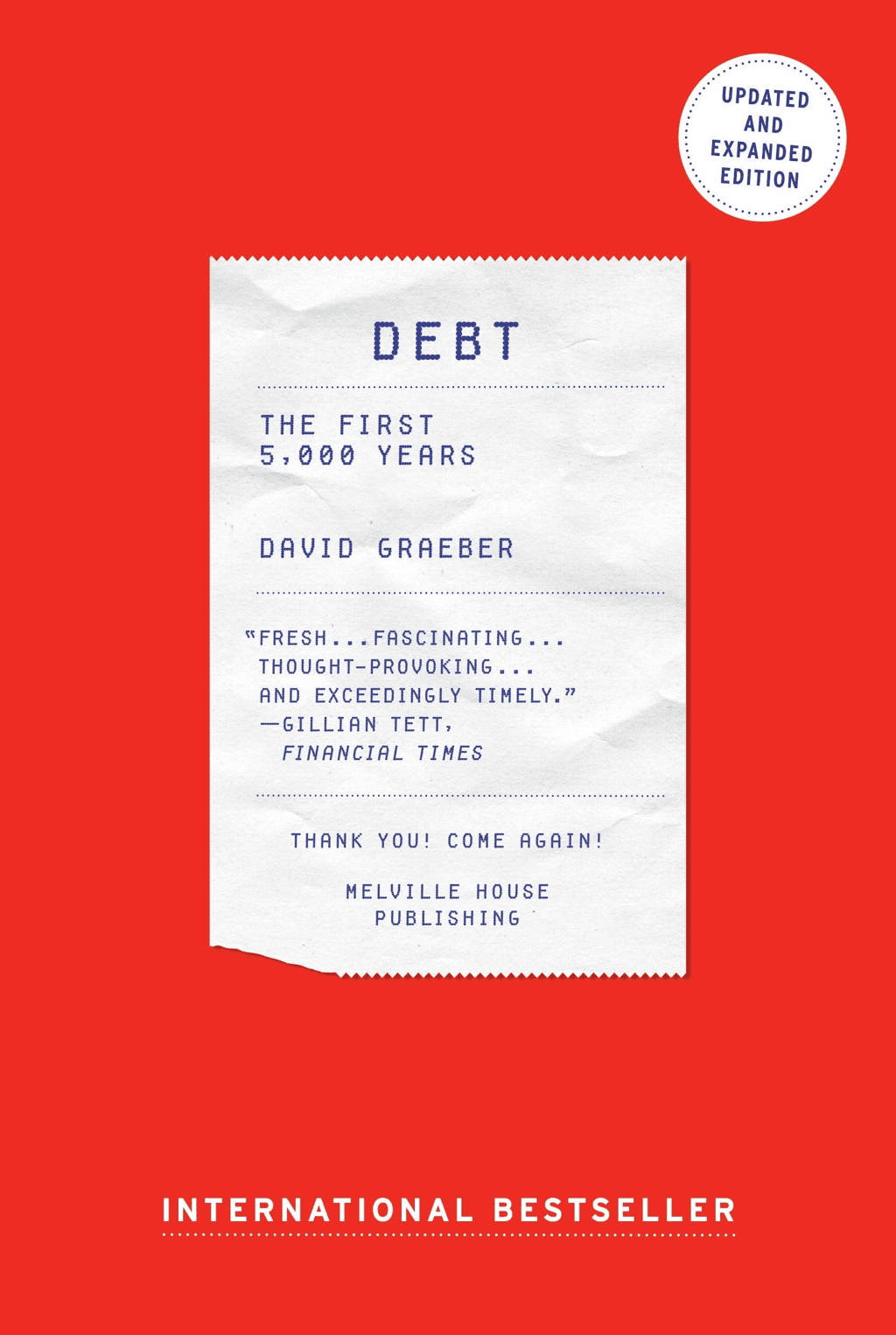The study of economics is one of the oldest and most important fields of study in the world. Throughout centuries, economists have developed theories and concepts to help us better understand the complex economic system that we live in. The best economic books offer a comprehensive introduction to the field, covering a wide range of topics from micro and macroeconomics to international trade and finance. These books provide an excellent starting point for anyone interested in learning more about the economy and how it shapes our lives. From classic works such as Adam Smith's "The Wealth of Nations" to more modern offerings like Thomas Piketty's "Capital in the Twenty-First Century", the best economic books offer an in-depth look at the world of economics and provide valuable insight into some of the most pressing economic issues of our time.
1. Thinking Fast and Slow
Engaging the reader in a lively conversation about how we think, Kahneman reveals where we can and cannot trust our intuitions and how we can tap into the benefits of slow thinking. He offers practical and enlightening insights into how choices are made in both our business and our personal lives―and how we can use different techniques to guard against the mental glitches that often get us into trouble. Topping bestseller lists for almost ten years, Thinking, Fast and Slow is a contemporary classic, an essential book that has changed the lives of millions of readers.
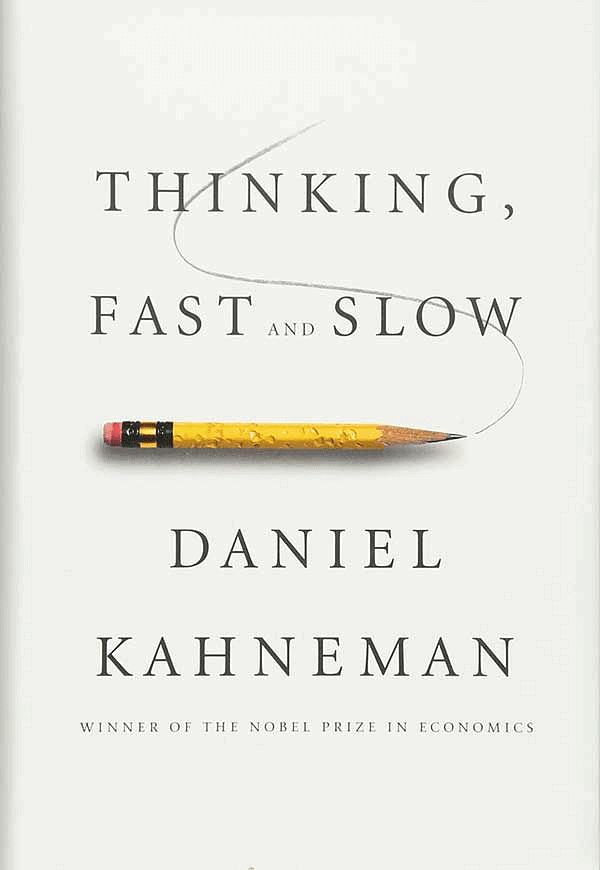
2. The Undercover Economist
Who makes most money from the demand for cappuccinos early in the morning at Waterloo Station? Why is it impossible to get a foot on the property ladder? How does the Mafia make money from laundries when street gangs pushing drugs don't? Who really benefits from immigration? How can China, in just fifty years, go from the world's worst famine to one of the greatest economic revolutions of all time, lifting a million people out of poverty a month? Looking at familiar situations in unfamiliar ways, The Undercover Economist is a fresh explanation of the fundamental principles of the modern economy, illuminated by examples from the streets of London to the booming skyscrapers of Shanghai to the sleepy canals of Bruges. Leaving behind textbook jargon and equations, Tim Harford will reveal the games of signals and negotiations, contests of strength and battles of wit that drive not only the economy at large but the everyday choices we make.
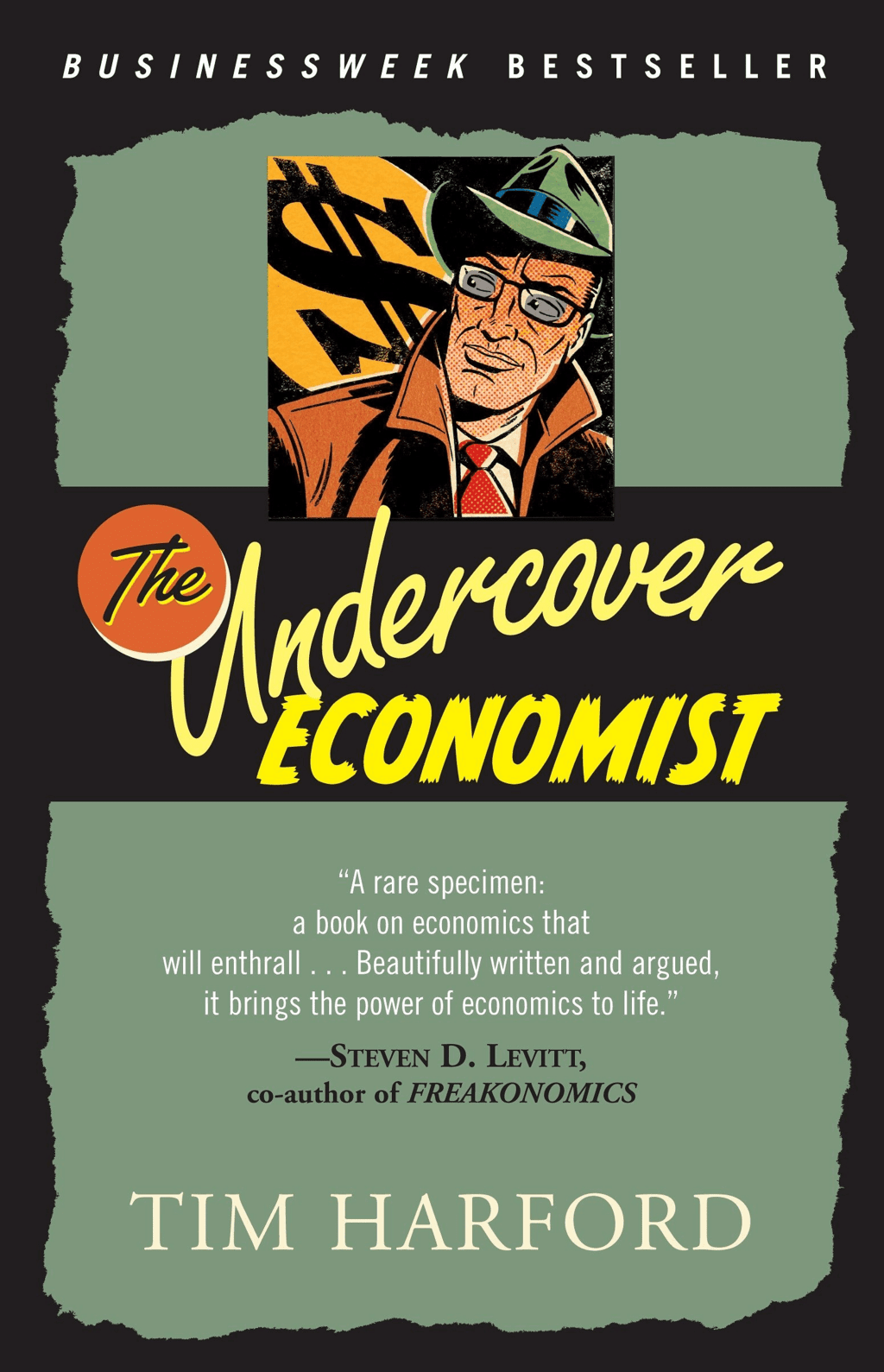
3. Confessions of an Economic Hit Man
As an Economic Hit Man (EHM), John Perkins helped further American imperial interests in countries such as Ecuador, Panama, Indonesia and Saudi Arabia. As Chief Economist for the international consulting firm Chas. T. Main, he convinced underdeveloped countries to accept massive loans for infrastructure development and ensured that the projects were contracted to multinational corporations. The countries acquired enormous debt, and the US and international aid agencies were able to control their economies.

4. The White Man's Burden
From one of the world’s best-known development economists—an excoriating attack on the tragic hubris of the West’s efforts to improve the lot of the so-called developing worldIn his previous book, The Elusive Quest for Growth, William Easterly criticized the utter ineffectiveness of Western organizations to mitigate global poverty, and he was promptly fired by his then-employer, the World Bank. The White Man’s Burden is his widely anticipated counterpunch—a brilliant and blistering indictment of the West’s economic policies for the world’s poor. Sometimes angry, sometimes irreverent, but always clear-eyed and rigorous, Easterly argues that we in the West need to face our own history of ineptitude and draw the proper conclusions, especially at a time when the question of our ability to transplant Western institutions has become one of the most pressing issues we face.
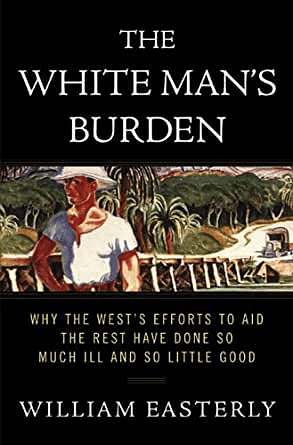
5. The Wealth of Nations
Right from examining the division of labour, the origin and use of money and the division of stock, to the rise and progress of cities and towns after the fall of the Roman Empire, the systems of political economy and the taxes on various private revenues, Adam Smith’s The Wealth of Nations provides an extensive assessment of the creation of a nation’s wealth. Laying the foundation of classical political economy, this magnum opus is considered one of the best non-fiction books of all time. More than two centuries after its first publication in 1776, The Wealth of Nations continues to remain as influential as ever.
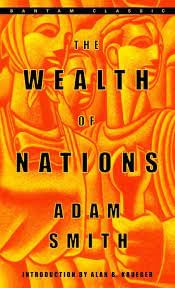
6. The Intelligent Investor
It is a widely acclaimed book by Benjamin Graham on value investing. Written by one of the greatest investment advisers of twentieth century, the book aims at preventing potential investors from substantial errors and also teaches them strategies to achieve long-term investment goals. Over the years, investment market has been following teachings and strategies of Graham for growth and development. In the book, Graham has explained various principles and strategies for investing safely and successfully without taking bigger risks. Modern-day investors still continue to use his proven and well-executed techniques for value investment. The current edition highlights some of the important concepts that are useful for latest financial orders and plans. Keeping Graham's unique text in original form, the book focuses on major principles that can be applied in day-to-day life. All the concepts and principles are explained with the help of examples for better clarity and understanding of the financial world. Combination of original plan of Graham and the current financial situations are the reason behind this book's preference today's investors. It is a detailed version with several wisdom quotes that are likely to change one's investing career and lead to the path of financial safety and security.
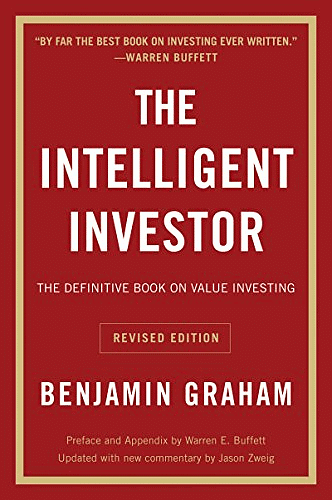
7. Naked Economics
Finally! A book about economics that won’t put you to sleep. In fact, you won’t be able to put this bestseller down. In our challenging economic climate, this perennial favorite of students and general readers is more than a good read, it’s a necessary investment—with a blessedly sure rate of return. Demystifying buzzwords, laying bare the truths behind oft-quoted numbers, and answering the questions you were always too embarrassed to ask, the breezy Naked Economics gives readers the tools they need to engage with pleasure and confidence in the deeply relevant, not so dismal science.
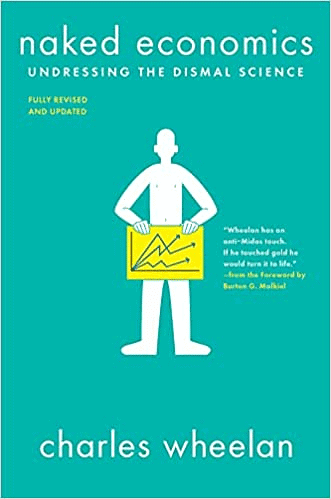
8. Small is Beautiful
How does our economic system impact the way we live? Does it really affect what we truly care about? Oxford economist E. F. Schumacher provides an enlightening study of our economic system and its purpose, challenging the current state of excessive consumption in our society. Offering a crucial message for the modern world struggling to balance economic growth with the human costs of globalisation, Small Is Beautiful puts forward the revolutionary yet viable case for building our economies around the needs of communities, not corporations. ‘One of the 100 most influential books published since World War II’ The Times Literary Supplement.
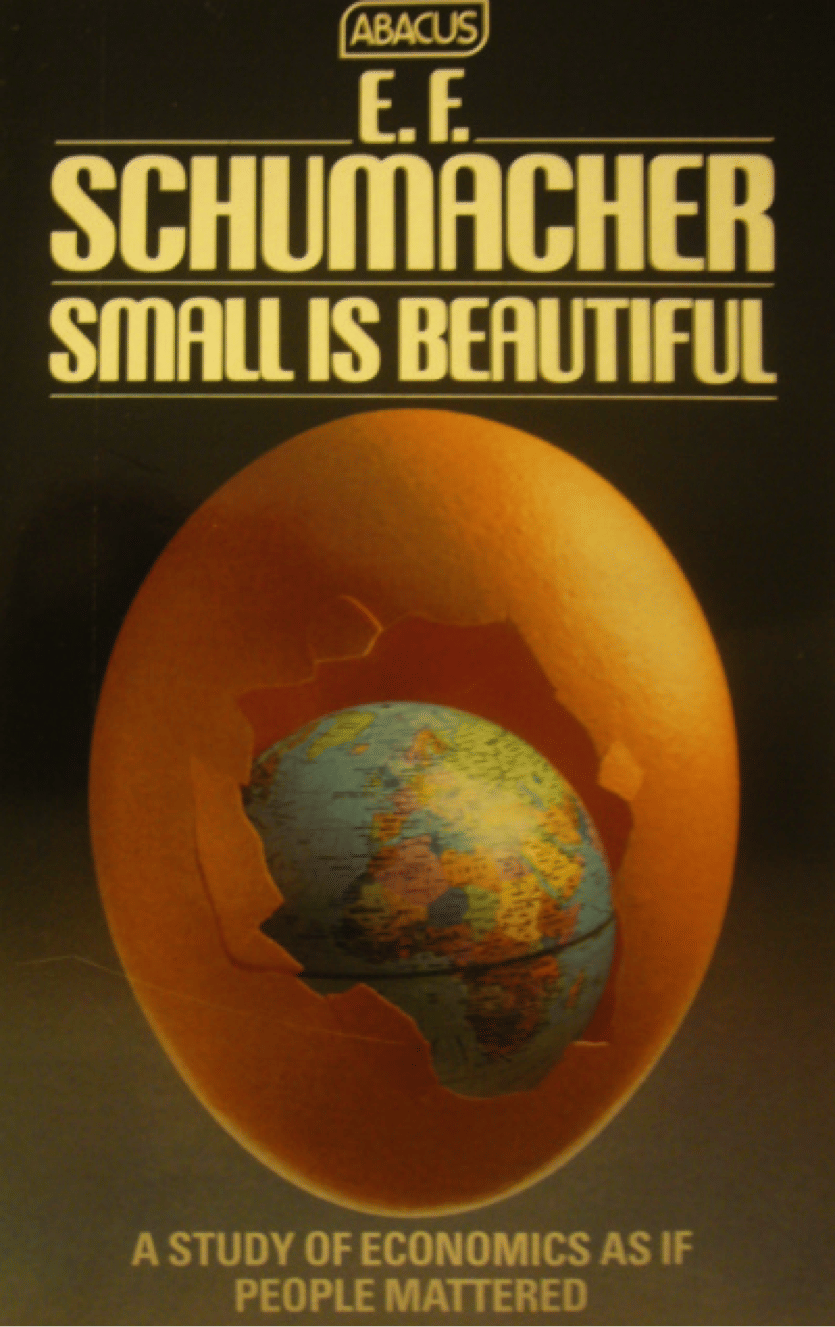
9. The Price of Onions
Ashok V Desai is a thinker with a difference. He has the Unique ability to give from to theory and to translate ideas into practice. He is a commentator who matches wit with lucidity, and simplicity with depth. Comment is only his latest pursuit. As student in Cambridge, he explored the rise of Germany as an economic power in the nineteenth century; he then went to teach in Oxford, Bombay and the University of the South Pacific in Suva. He showed that India's attempts to replace technology imports were actually slowing down its development. He suggested giving import licences to exporters and letting them sell them-an idea P. Chidamabram used in 1992 as a first step to trade liberalization. That led Manmohan Singh to take him as adviser in the fiancne ministry, where he helped design the first liberal reforms and unshackle the economy. Desai is an unashamed proponent of Competition and free markets. He demonstrates a mastery of the instruments of policy to spread prosperity. His command of data, his roving knowledge of the past and present, and his incisive reasoning make a formidable repertoire. He uses those skills in this book of help non-economists penetrate some economic thickets and have fun doing so.
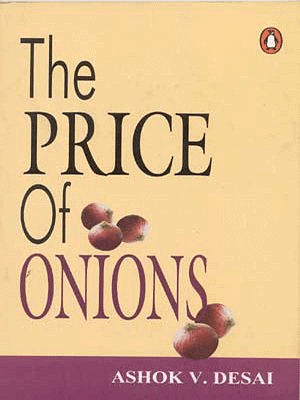
10. Capital in the Twenty-First Century
Understand the grand dynamics that drive the accumulation of capital This book, 'Capital in the Twenty-First Century' addresses your thought provoking questions about various aspects of capital and its flow. It talks about many questions about long term evolution of basic social problems like inequality, the vast concentration of wealth amongst a minority population bracket and how the prospects of the economic growth of a developing nation lie at the heart of the political economy. Due to lack of data, satisfactory answers were scarce in the past. This book gives you the right answers with detailed and concise explanations. Get into the depths of the 21st century capital flow Thomas Piketty analyses the 21st century capital flow by taking up data from twenty countries that dates back to the eighteenth century, to uncover the key secrets behind social and economic patterns. His answers will set the goal for the next generation on the lines of wealth. He shows that the mix-up of modern economic growth and knowledge has allowed the world to get over the aspect of inequality on an apocalyptic scale which was predicted by Karl Marx.
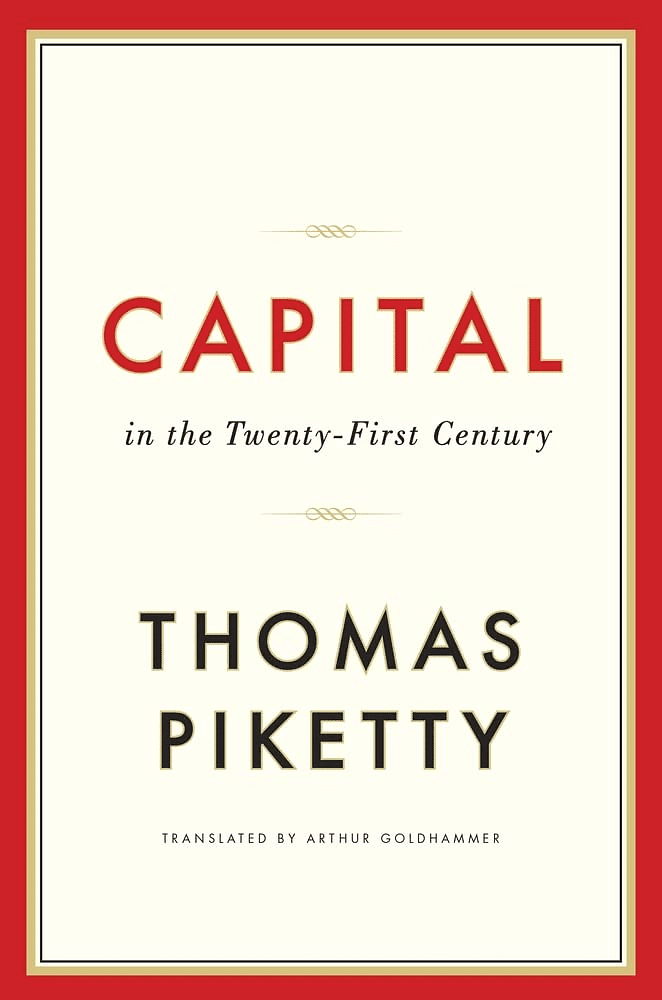
11. Poor Economics
Why do the poor borrow to save? Why do they miss out on free life-saving immunizations, but pay for unnecessary drugs? In Poor Economics , Abhijit V. Banerjee and Esther Duflo, two practical visionaries working toward ending world poverty, answer these questions from the ground. In a book the Wall Street Journal called marvellous, rewarding," the authors tell how the stress of living on less than 99 cents per day encourages the poor to make questionable decisions that feed,not fight,poverty. The result is a radical rethinking of the economics of poverty that offers a ringside view of the lives of the world's poorest, and shows that creating a world without poverty begins with understanding the daily decisions facing the poor.
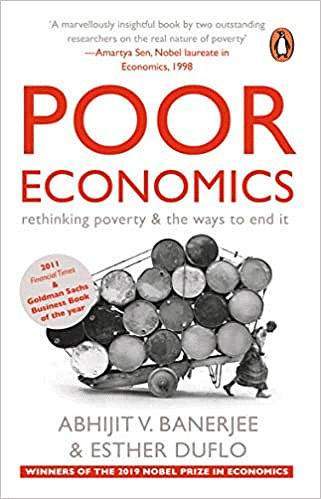
12. Principles of Economics
With its clear and engaging writing style, Principal Of Economics, Sixth Edition, continues to be one of the most popular books on economics available today. Mankiw emphasizes material that you are likely to find interesting about the economy (particularly if you are studying economics for the first time), including real-life scenarios, useful facts, and the many ways economic concepts play a role in the decisions you make every day.
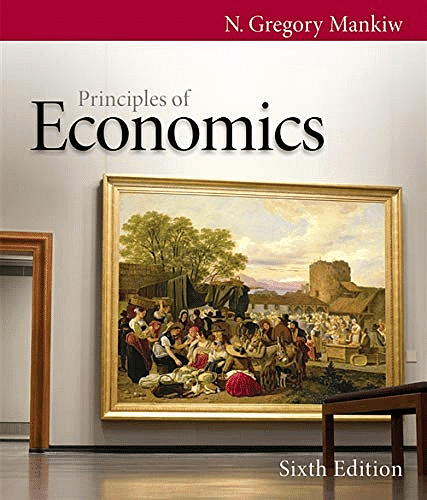
13. Economics in One Lesson
With over a million copies sold, Economics in One Lesson is an essential guide to the basics of economic theory. A fundamental influence on modern libertarianism, Hazlitt defends capitalism and the free market from economic myths that persist to this day. Considered among the leading economic thinkers of the “Austrian School,” which includes Carl Menger, Ludwig von Mises, Friedrich (F. A. ) Hayek, and others, Henry Hazlitt (1894-1993), was a libertarian philosopher, an economist, and a journalist. He was the founding vice-president of the Foundation for Economic Education and an early editor of The Freeman magazine, an influential libertarian publication. Hazlitt wrote Economics in One Lesson, his seminal work, in 1946. Concise and instructive, it is also deceptively prescient and far-reaching in its efforts to dissemble economic fallacies that are so prevalent they have almost become a new orthodoxy. Economic commentators across the political spectrum have credited Hazlitt with foreseeing the collapse of the global economy which occurred more than 50 years after the initial publication of Economics in One Lesson. Hazlitt’s focus on non-governmental solutions, strong — and strongly reasoned — anti-deficit position, and general emphasis on free markets, economic liberty of individuals, and the dangers of government intervention make Economics in One Lesson every bit as relevant and valuable today as it has been since publication.
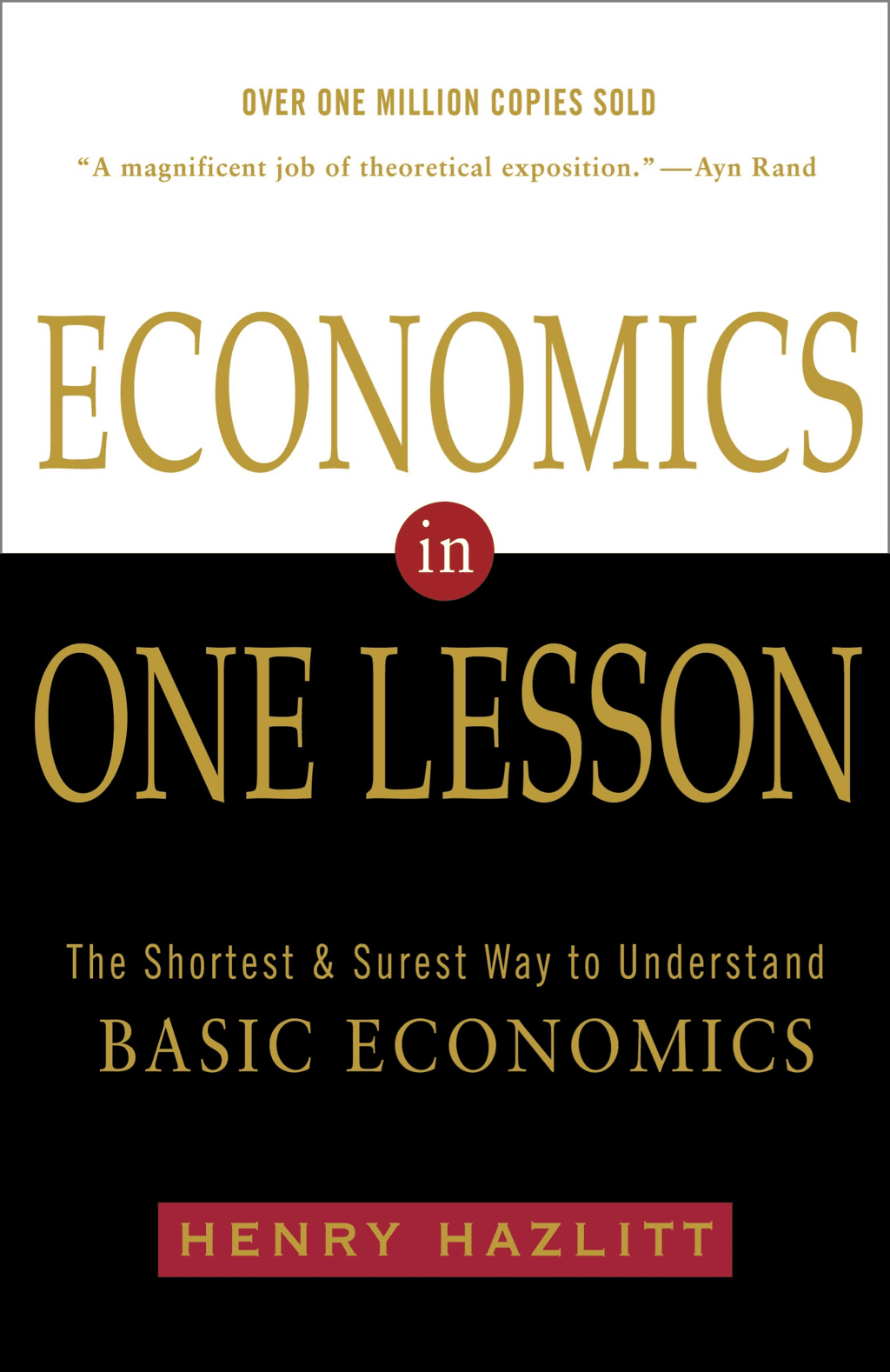
14. Why Nations Fail
Brilliant and engagingly written, Why Nations Fail answers the question that has stumped the experts for centuries: Why are some nations rich and others poor, divided by wealth and poverty, health and sickness, food and famine? Is it culture, the weather, geography? Perhaps ignorance of what the right policies are? Simply, no. None of these factors is either definitive or destiny. Otherwise, how to explain why Botswana has become one of the fastest growing countries in the world, while other African nations, such as Zimbabwe, the Congo, and Sierra Leone, are mired in poverty and violence? Daron Acemoglu and James Robinson conclusively show that it is man-made political and economic institutions that underlie economic success (or lack of it). Korea, to take just one of their fascinating examples, is a remarkably homogeneous nation, yet the people of North Korea are among the poorest on earth while their brothers and sisters in South Korea are among the richest. The south forged a society that created incentives, rewarded innovation, and allowed everyone to participate in economic opportunities. The economic success thus spurred was sustained because the government became accountable and responsive to citizens and the great mass of people.
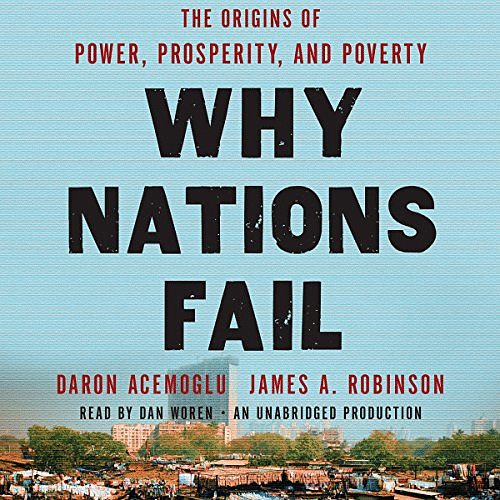
15. The Return Of Depression Economics
Paul Krugman, winner of the 2008 Nobel Prize in economics, shows how today's crisis parallels the events that caused the Great Depression - and explains what it will take to avoid catastrophe. In 1999, in The Return of Depression Economics, Paul Krugman surveyed the economic crises that had swept across Asia and Latin America, and warned that those crises were a warning for all of us: like diseases that have become resistant to antibiotics, the economic maladies that caused the Great Depression were making a comeback. In the years that followed, as Wall Street boomed and financial wheeler-dealers made vast profits, the international crises of the 1990s faded from memory. But now depression economics has come to America: when the great housing bubble of the mid-2000s burst, the U. S. financial system proved as vulnerable as those of developing countries caught up in earlier crises - and a replay of the 1930s seems all too possible. In this new, greatly updated edition of The Return of Depression Economics, Krugman shows how the failure of regulation to keep pace with an increasingly out-of-control financial system set the United States, and the world as a whole, up for the greatest financial crisis since the 1930s. He also lays out the steps that must be taken to contain the crisis, and turn around a world economy sliding into a deep recession. Brilliantly crafted in Krugman's trademark style-lucid, lively, and supremely informed - this new edition of The Return of Depression Economics will become an instant cornerstone of the debate over how to respond to the crisis.
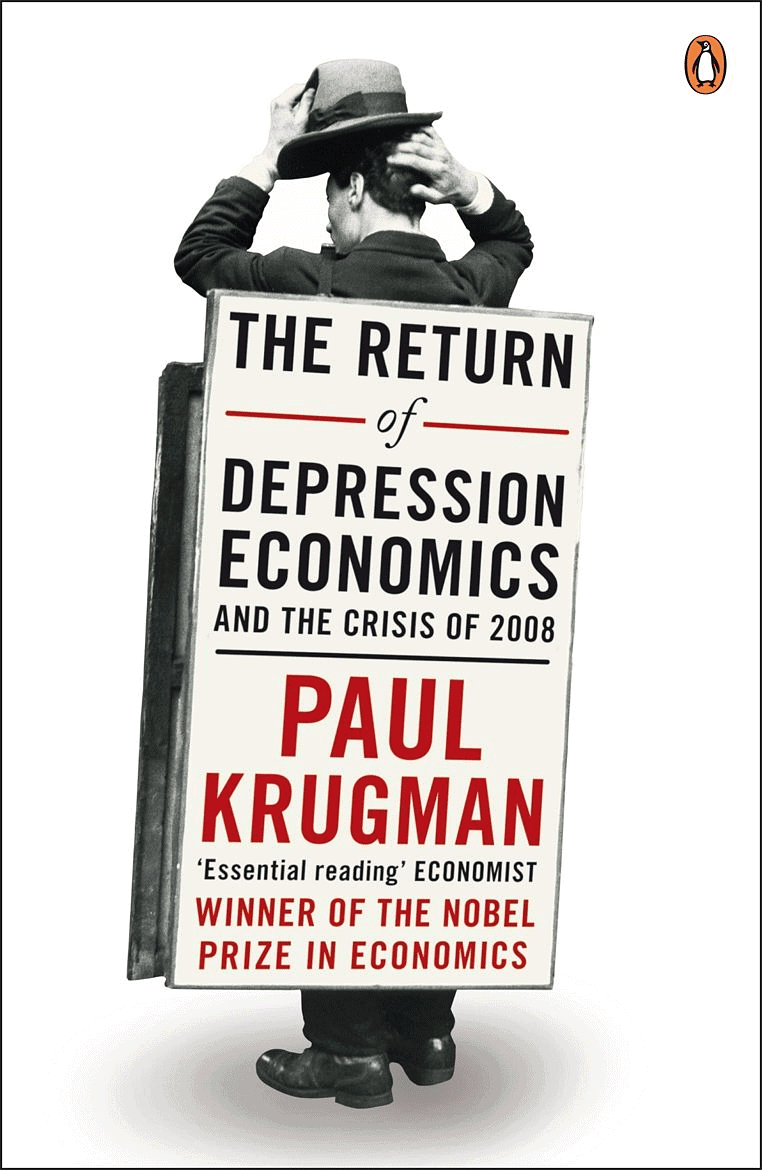
16. Prosperity without Growth
What can prosperity possibly mean in a world of environmental and social limits?The publication of Prosperity without Growth was a landmark in the sustainability debate. Tim Jackson’s piercing challenge to conventional economics openly questioned the most highly prized goal of politicians and economists alike: the continued pursuit of exponential economic growth. Its findings provoked controversy, inspired debate and led to a new wave of research building on its arguments and conclusions. This substantially revised and re-written edition updates those arguments and considerably expands upon them. Jackson demonstrates that building a ‘post-growth’ economy is a precise, definable and meaningful task. Starting from clear first principles, he sets out the dimensions of that task: the nature of enterprise; the quality of our working lives; the structure of investment; and the role of the money supply. He shows how the economy of tomorrow may be transformed in ways that protect employment, facilitate social investment, reduce inequality and deliver both ecological and financial stability.
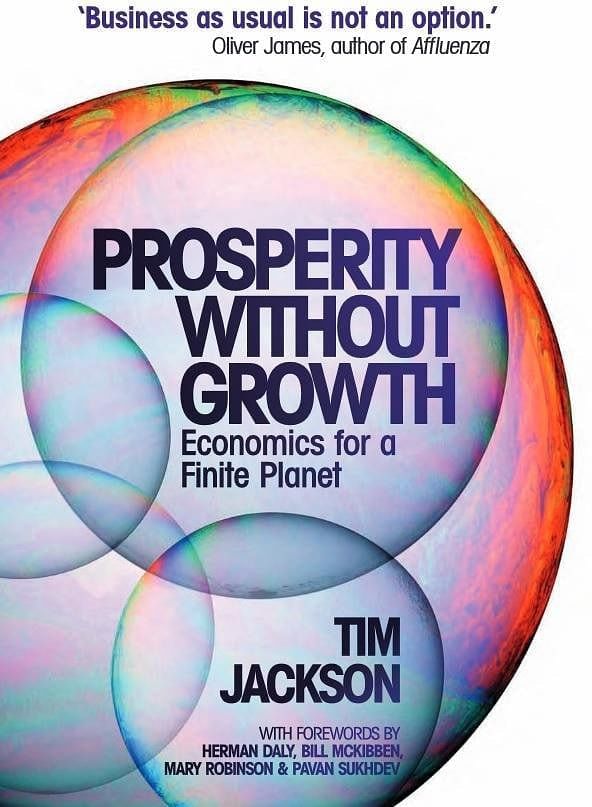
17. Debunking Economics
Debunking Economics exposes what many non-economists may have suspected and a minority of economists have long known: that economic theory is not only unpalatable, but also plain wrong. When the original Debunking was published back in 2001, the market economy seemed invincible, and conventional 'neoclassical' economic theory basked in the limelight. Steve Keen argued that economists deserved none of the credit for the economy's performance, and that 'the false confidence it has engendered in the stability of the market economy has encouraged policy-makers to dismantle some of the institutions which initially evolved to try to keep its instability within limits'. That instability exploded with the devastating financial crisis of 2007, and now haunts the global economy with the prospect of another Depression.
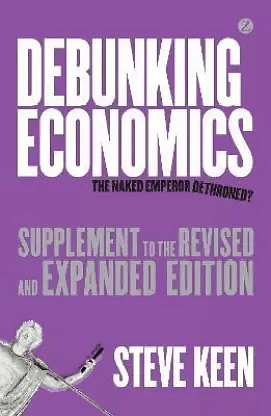
18. The Myth of the Rational Market
“Do we really need yet another book about the financial crisis? Yes, we do—because this one is different….A must-read for anyone who wants to understand the mess we’re in.”—Paul Krugman, New York Times Book Review “Fox makes business history thrilling.”—St. Louis Post-Dispatch A lively history of ideas, The Myth of the Rational Market by former Time Magazine economics columnist Justin Fox, describes with insight and wit the rise and fall of the world’s most influential investing idea: the efficient markets theory. Both a New York Times bestseller and Notable Book of the Year—longlisted for the Financial Times Business Book of the Year Award and named one of Library Journal Best Business Books of the Year—The Myth of the Rational Market carries readers from the earliest days of Wall Street to the current financial crisis, debunking the long-held myth that the stock market is always right in the process while intelligently exploring the replacement theory of behavioral economics.
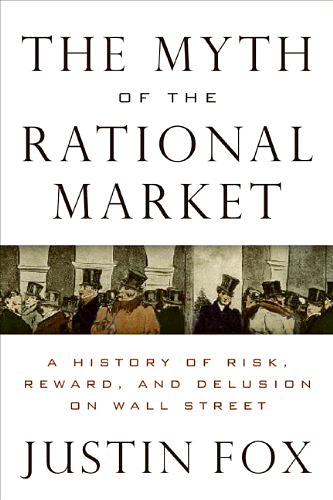
19. Debt: The First 5000 Years
In a stunning reversal of conventional wisdom, Graeber radically challenges our understanding of debt. He illustrates how for more than 5000 years long before the invention of coins or bills, there existed debtors and creditors who used elaborate credit systems to buy and sell goods. He argues that Madagascar was held to be indebted to France because France invaded it, reminds us that texts from Vedic India included God in credit systems and shows how the dollar changed European society forever in the sixteenth century. Debt, the first 5000 years is a fascinating chronicle of this little known history of how it has defined the evolution of human society and what it means for the credit crisis of the present day and the future of the economy.
